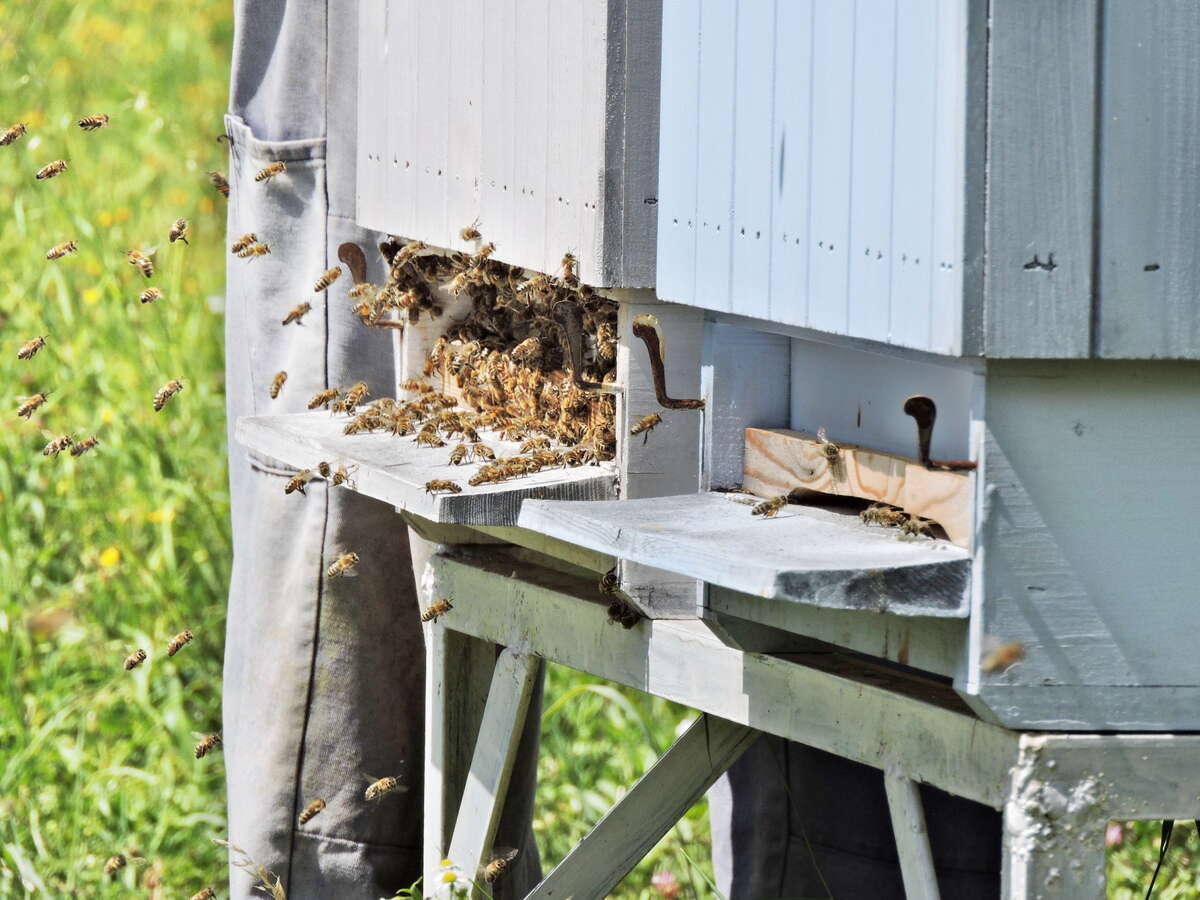Bees as Pollinators: Guardians of Biodiversity
Bees are the unsung heroes of terrestrial ecosystems. By transferring pollen from one flower to another, they facilitate the reproduction of countless plant species, creating a ripple effect that sustains the natural world. These tireless workers ensure that trees bear fruit, wildflowers bloom across meadows, and entire ecosystems remain interconnected. Without their efforts, the cycle of life as we know it would falter.
Agriculture
From an agricultural perspective, the role of bees cannot be overstated. They are responsible for pollinating over 75% of the world’s food crops, including fruits like apples, oranges, and cherries; vegetables such as cucumbers and pumpkins; and staples like almonds and coffee. Bees’ pollination directly influences crop yield, quality, and variety. In fact, one out of every three bites of food you consume is made possible by bees. They are not only nature's gardeners but also key players in global food security.

Beyond the fields and orchards, bees support biodiversity in untamed landscapes. Wildflowers and plants rely on bees for reproduction, and these plants, in turn, feed and shelter a host of other organisms. Butterflies, beetles, birds, and mammals benefit from the fruits and seeds that emerge from pollination. A single bee's journey from flower to flower connects an intricate web of life that extends across ecosystems, proving that their work is not just vital but irreplaceable.
The relationship between bees and flowering plants is an extraordinary example of co-evolution. Over millions of years, flowers have developed unique strategies to attract bees—vibrant colors, sweet scents, and intricate patterns act as beacons for pollinators. Some flowers even emit ultraviolet markings visible only to bees, creating a hidden roadmap to their nectar stores. In response, bees have evolved physical adaptations such as hairy bodies that collect pollen efficiently and specialized structures like the proboscis, which allows them to access nectar hidden deep within a flower. This mutualistic relationship ensures the survival of both species and highlights the remarkable harmony of nature.
Disharmony - harmony
However, the absence of bees would spell disaster. Imagine a world where plants could no longer reproduce effectively. Forests would thin, crops would fail, and the biodiversity that supports entire ecosystems would collapse. Herbivores that depend on flowering plants for sustenance would dwindle, and the predators that rely on these herbivores would follow. This chain reaction would disrupt food webs, leaving devastating consequences not just for wildlife but also for human civilization. Bees are not just pollinators—they are guardians of balance, holding ecosystems together with their unrelenting efforts.
Yet their significance extends beyond the practical. Bees are symbols of balance and harmony in nature. Their presence in any environment indicates a thriving and healthy ecosystem. To watch bees at work is to witness a masterpiece of coordination and purpose. Each bee, seemingly fragile, carries the weight of ecosystems on its wings. They transform simple acts—like collecting nectar—into powerful contributions that sustain the intricate web of life on Earth.
For humans, bees also offer lessons in diligence, resilience, and cooperation. Observing a single hive reveals a society built on shared effort and sacrifice. Worker bees, for example, dedicate their short lives entirely to the wellbeing of the colony, performing roles as diverse as nursing larvae, guarding the hive, and foraging for food. Even their famed waggle dance, a form of communication that guides others to food sources, underscores the importance of teamwork.
Bees’ roles are not just functional; they are deeply inspirational. They remind us that even the smallest creatures can have an outsized impact. The life of a bee, often lasting just a few weeks during peak foraging season, is a testament to purpose and perseverance. They work tirelessly for the collective good, unaware of the global importance of their efforts. Yet, in their simplicity, they achieve what even the most complex human systems struggle to replicate—sustainability.
Challenges
Their symbolism as environmental stewards is especially poignant in today’s world, where natural habitats face unprecedented challenges. Bees thrive in environments rich with diversity, but modern agricultural practices, urbanization, and climate change have jeopardized their survival. Monoculture farming depletes the variety of plants they need for sustenance, while urban sprawl reduces the wildflowers they rely on. Pesticides, particularly neonicotinoids, further threaten bee populations, interfering with their navigation and reproductive systems.
Efforts to protect bees are efforts to protect the planet itself. By planting pollinator-friendly gardens, preserving wild habitats, and advocating for pesticide-free farming, humans can help create environments where bees can thrive. The survival of these small creatures is intertwined with the wellbeing of ecosystems—and humanity itself.
In the end, bees are more than just vital pollinators; they are nature's ambassadors, bridging the gap between plants and animals, between ecology and agriculture, and between the natural and human worlds. Their tireless flight from flower to flower carries a message of interconnectedness, reminding us that every action, no matter how small, plays a part in the greater tapestry of life. To honor and protect bees is to honor the delicate balance that sustains life on Earth.